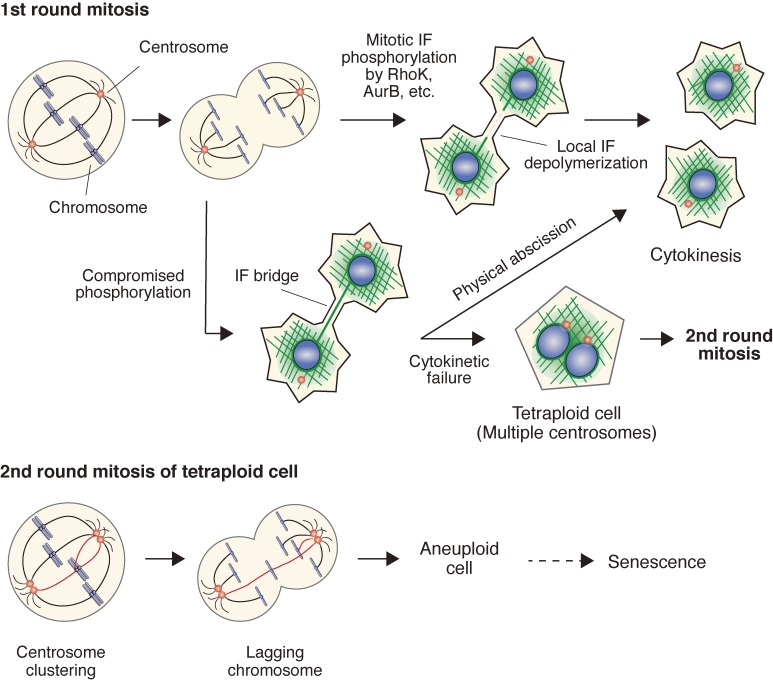Figure 1.
Compromised IF phosphorylation leads to defective cytokinesis, tetraploidy, and aneuploidy. From anaphase to telophase, Rho kinase and Aurora B kinase phosphorylate type III IFs, leading to local IF depolymerization and cytokinesis. When this phosphorylation is compromised, unusual long bridge-like IF structures are formed, leading to cytokinetic failure and tetraploidy, a condition in which cells have four homologous sets of chromosomes. Mitosis of tetraploid cells frequently causes lagging chromosomes through merotelic attachment, resulting in aneuploidy, a deviation from a multiple of the haploid chromosome number in which some of the chromosomes are missing or present in excess. Aneuploidy is frequently observed in cancer cells and senescent cells.

